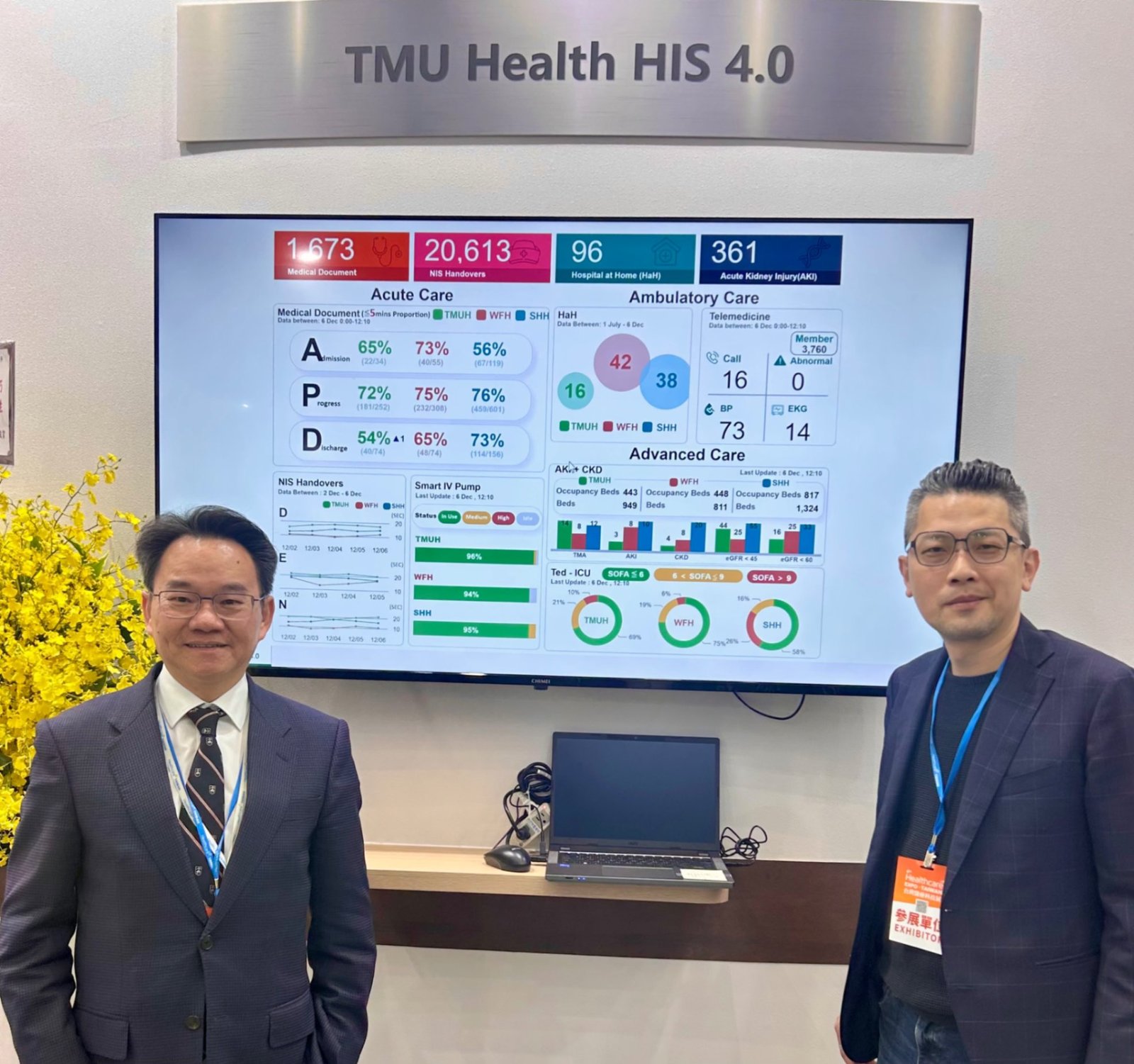
During the Healthcare+ Expo Taiwan 2024, we had the privilege of speaking with Kang-Yun Lee, Executive Vice President of Taiwan Medical University Hospital. In this interview, Dr. Lee shared insights into how his hospital is using cutting-edge smart technologies to improve healthcare services, enhance patient outcomes, and lead the way in the development of integrated systems for healthcare transformation.
Q1: Can you share your hospital's vision for transforming healthcare through smart technologies?
Kang-Yun Lee:
Our vision at Taiwan Medical University Hospital is to provide value-based care that ensures all patients, and even healthy individuals, can lead healthier lives. We focus on three key areas: acute care, ambulatory care, and advanced care.
These three areas form the core of our hospital’s mission to improve healthcare delivery.
Q2: How does the hospital use advanced data analytics and machine learning to personalize patient treatment, particularly for complex cases?
Kang-Yun Lee:
We have developed a comprehensive platform called HIST 3.0, which integrates all hospital systems into one unified IT infrastructure. This includes data from medical records, nurse’s notes, laboratory tests, pathology reports, and imaging systems. We’ve also incorporated genetic data and exposome data, which tracks the lifetime exposure to environmental factors like pollution, diet, and infections.
This integrated system allows us to use generative AI for various applications, from medical record keeping to real-time patient monitoring. For example, our smart IV pump system connects with the hospital's central system, allowing nurses to monitor patients remotely, without needing to be at the bedside. In the future, we plan to use AI for genetic analysisand monoclonal antibody tests, which will further streamline diagnostics and treatment planning for complex cases.
Q3: What are some flagship smart healthcare solutions that your hospital is using, which are unique in Taiwan?
Kang-Yun Lee:
We are particularly proud of our Integrated Healthcare System, where all hospital data is connected, and no system operates in isolation. This unified platform is unique because it facilitates seamless data collection and analysis, something that most hospitals in Taiwan have yet to implement.
Additionally, we’ve developed advanced AI solutions, such as the Smart IV Pump System and Deepgram AI, a software that assists doctors in reading low-dose CT scans. This AI can analyze hundreds of CT images in just 10 seconds, providing doctors with accurate reports for not only lung cancer but also for heart and bone health, such as osteoporosis. This system significantly improves diagnostic accuracy while saving valuable time for radiologists.
Our hospital is also leading in regenerative medicine with cutting-edge treatments, including cell therapies for conditions like knee joint arthritis. These unique solutions set us apart from other hospitals in Taiwan.
Taiwan Medical University Hospital is at the forefront of healthcare innovation, using smart technologies and AI to improve patient outcomes and enhance operational efficiency. Under the leadership of Dr. Kang-Yun Lee, the hospital is not only revolutionizing healthcare services in Taiwan but also creating new opportunities for international collaborations in the healthcare sector.